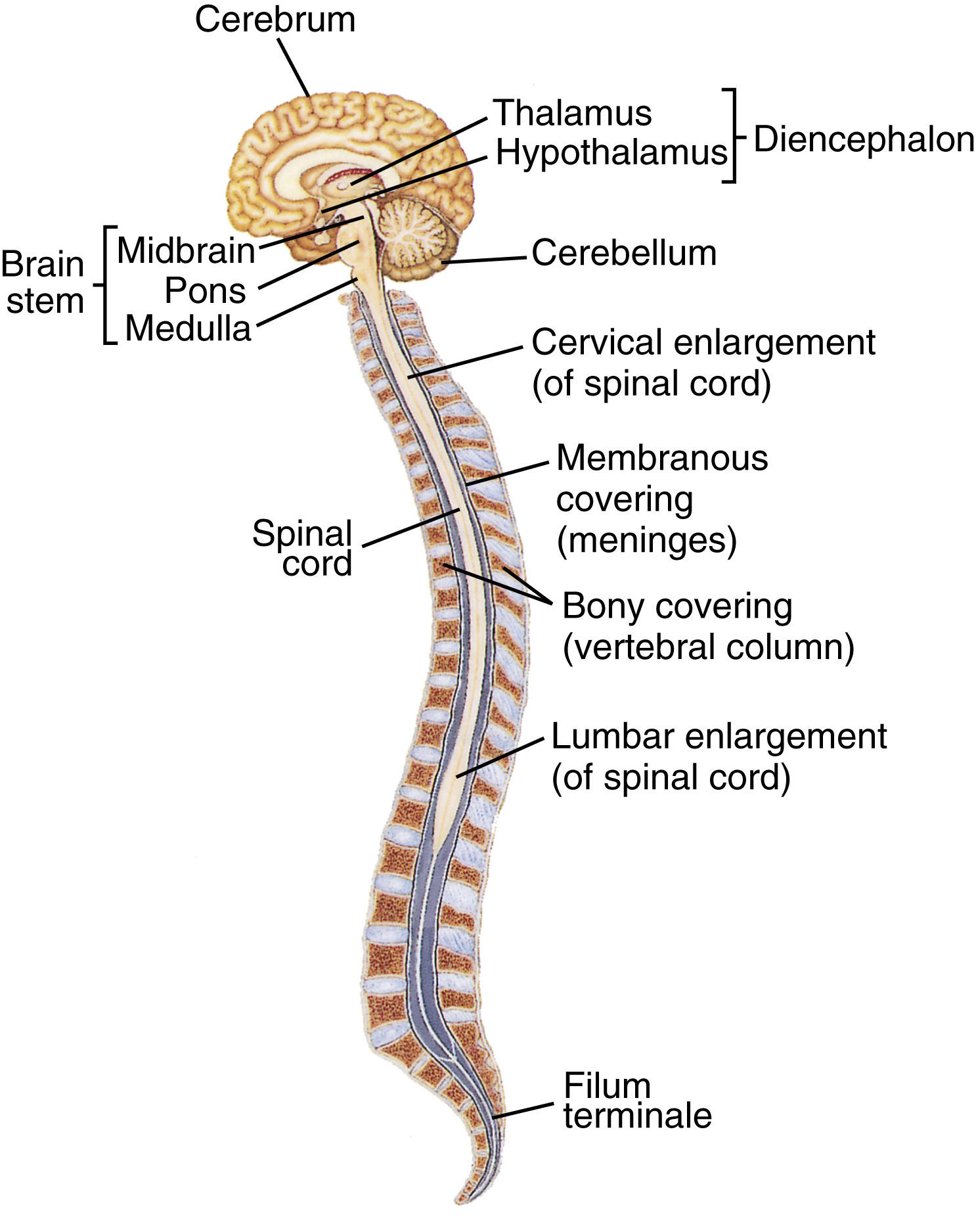central nervous system (CNS) [Gk, kentron + L, nervus, nerve; Gk, systema] , one of the two main divisions of the nervous system, consisting of the brain and the spinal cord. The central nervous system processes information to and from the peripheral nervous system and is the main network of coordination and control for the entire body. The brain controls many functions and sensations, such as sleep, sexual activity, muscular movement, hunger, thirst, memory, and emotions. The spinal cord extends various types of nerve fibers from the brain and acts as a switching and relay terminal for the peripheral nervous system. The 12 pairs of cranial nerves emerge directly from the brain. Sensory nerves and motor nerves of the peripheral system leave the spinal cord separately between the vertebrae but unite to form 31 pairs of spinal nerves containing sensory fibers and motor fibers. More than 10 billion neurons constitute but one tenth of the brain cells; the other cells consist of neuroglia that support the neurons. The neurons and the neuroglia form the soft, jellylike substance of the brain, which is supported and protected by the skull. The brain and the spinal cord are composed of gray matter and white matter. The gray matter primarily contains nerve cells and associated processes; the white matter consists predominantly of bundles of myelinated nerve fibers. Compare peripheral nervous system. See also brain, spinal cord.

